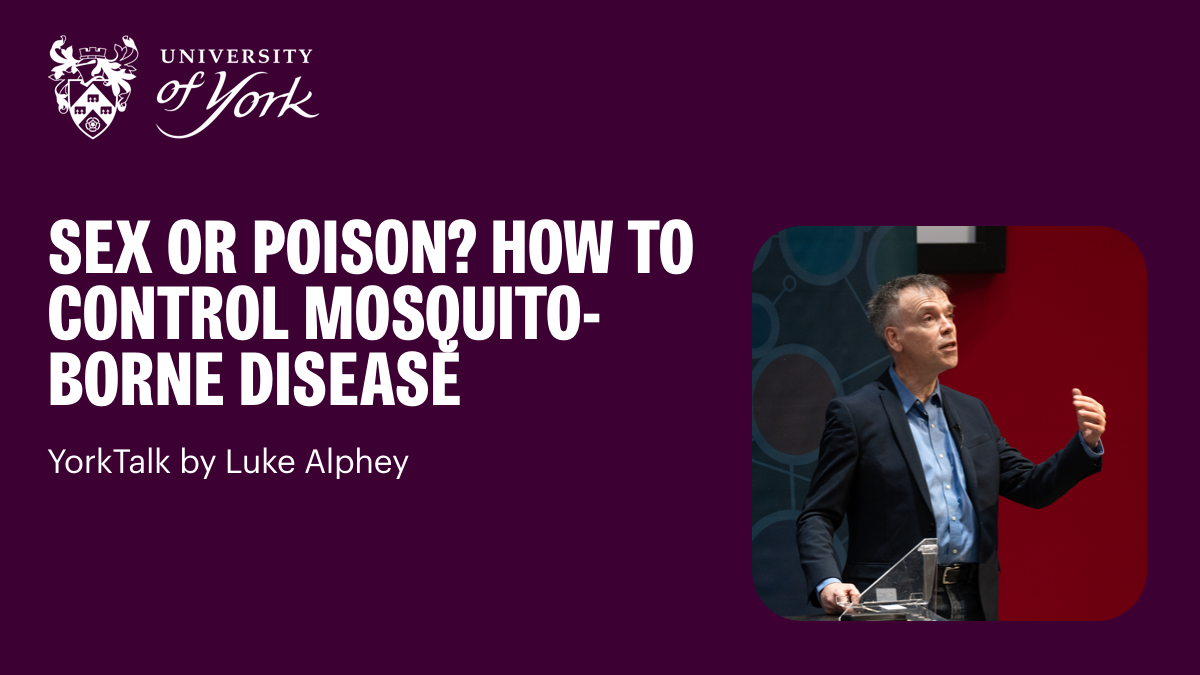YorkTalks - Professor Luke Alphey
Posted on Monday 26 February 2024

Abstract
In 2021, malaria infected an estimated 250 million people and killed 620,000, mostly children under five years. That’s an improvement over the 900,000 killed in 2000, thanks to widespread use of insecticide-treated bed nets and other interventions, but progress seems to have stalled.
Meanwhile there were an estimated 400 million infections by dengue virus, also mosquito-borne though by a different mosquito species than malaria. These are long-established diseases, but mosquito-borne viruses can also emerge and spread rapidly around the world, with two major new epidemics this century (chikungunya virus ~2005 and Zika virus ~2015). Especially for these viral diseases there are few effective control measures; new approaches are sorely needed.
Professor Alphey is at the forefront of developing biotechnologies that can re-programme parts of the mosquito’s DNA code to reduce its ability to transmit disease. He explores how scientific advances in our understanding of “genetic pest management”, particularly “gene drives”, can potentially provide long-term control at low cost. There are several potential genetic pest management methods with varying properties – if you were a community leader or responsible for mosquito control in a disease-endemic area, what would you want?
You can watch the YorkTalks video on YouTube here
Notes to editors:
Learn more about YorkTalks on their webpage
